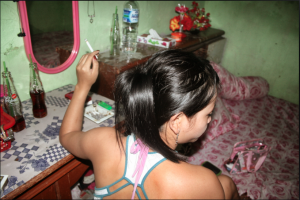Freedom of expression is a universal right The Charlie Hebdo massacre was a barbaric act of cruelty and a heartless attack against free expression. The global outpouring of commiserations and solidarity towards its victims, their families and friends are positive indications that the importance of free expression is a universally acknowledged value. This act of terror should not deter the courage of artists, writers, thinkers and activists to speak their mind. Democracy depends on peaceful disagreement. They are crucial elements for the health any modern and civilised society. The global connectedness of social media brought the disturbing images of the massacres into our view, thus it’s an opportunity for Malaysians to also speak out in defence of free expression. We have our own challenges here, and this incident is useful as a spur for dialogue on the importance of tolerance and engagement. We must remain vigilant too with regards to the disturbing fact that more and more disgruntled Malaysian Muslims are turning to terror, and that other extremist expressions of Islam are gradually gaining traction. Unfortunately, though not surprisingly, condemnations from our Muslim leaders thus far remain few and far between. Civil society and citizens must lead the way in ensuring that the right lessons are drawn. Be mindful of the backlash What is also needed is a more acute sensitivity towards the potential problems in the aftermath of the tragedy. One disturbing development is the increased vocal support for offensive speech even if it goes against the beliefs of an already stigmatised minority ethnic group. Thus far inquiry and caution into the possible violent backlash against Europe’s Muslim minorities, especially in a climate of already rife Islamophobia, remains minimal if not secondary, to calls to uphold the right to offend. This is worrying because there is nothing difficult about urging both at the same time. While offence is in many ways an expected outcome of any context of free flowing expression and communication, history has shown that it can often be used to marginalise. Among other things, the outright offence against certain cultures and their belief systems can be exploited, as a way to encourage already-existing prejudices. Free expression in this case would be a useful tool to urge caution towards that possibility. Exercise the freedom of expression to uphold an inclusive democratic society Free speech advocates should call for measures to combat the racist rhetoric that will emerge in a climate of grief. This would be consistent with humanitarian values than to just trumpet the right to offensive speech, however much that remains a right. We should recall that there is nothing about free expression that makes it inherently moral. Free expression enables racists, homophobes and misogynists to be vocal. Free expression will allow you to be rude and abrasive. Ironically, it’s also what’s enabled Ibrahim Ali to rejuvenate his career. But free expression is most valuable in how it recognises the equal rights for those at the margins to voice out their plight. It allows for the injustices of a system to be questioned, and for protest against cruel and arbitrary uses and abuses of power by government and society. The question then, in good conscience, is about how to best utilise and protect free speech in accordance with the goals of an inclusive democracy, especially amidst mourning and heightened frustrations. Protect marginalised communities The Enlightenment ideals of free expression historically emerged as a defence against the tyranny of authoritarian rule. Free speech is at its best when it protects the weak and the vulnerable, and in the case of France, as in the West more broadly, the millions of innocent Muslims today, even those conservative ones that we may not comprehend enough to like, are vulnerable against the powers of the state and the majority. It is a problem woven into broader anti-immigrant sentiments which has led to discrimination. There is of course a key role for satire and offensive humour in a democracy. Taste too is subjective. No amount of being offended can justify violence against the difference of attitudes and opinions. But to think that all satire is of equal worth strains credulity for the simple fact that all known contemporary societies face an unequal balance of power, and that efforts are best allocated to ensure that those who are most susceptible to the abuses of government force or mob mentality are protected. Take an example from the Malaysian context. Clearly, anyone committed to building a democracy here can distinguish, on one hand, the harmful effects of persistent satire against a working class immigrant and on the other, satire against Malay nationalists who can only evoke May 13th for mileage. One simply spews prejudice, while the other speaks truth to power. Condemning terrorism Terrorism should always be condemned. But one does not necessarily attain this by speaking for offensive speech. They are two separate issues that should not be conflated. We do not survive terror simply by being alive and angry, but by ensuring that we translate our protest into actual empathy and compassion. It is anyone’s right to remain indifferent, but there is also freedom to act and speak out constructively, in the name of protecting the vulnerable regardless of race, religion or lifestyle. Democracy will depend on the choices we make in how to best express ourselves while keeping the powerless in mind. For all of Malaysia’s problems, our fumbling experiment in building a multicultural democracy is a good occasion to demonstrate the most inclusive, and thus most valuable, use of free speech. We need genuine communication across differences. Surely we can think beyond the right to offend.
]]>




